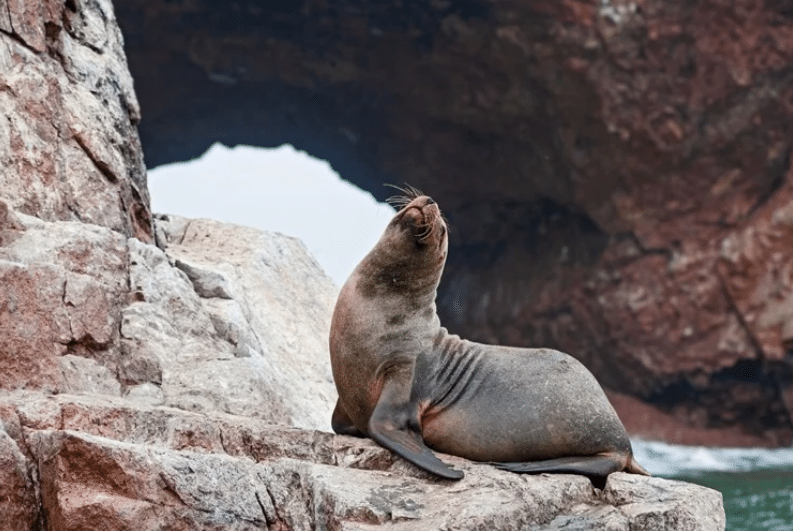
1. Avian flu decimates 5% of Peru’s sea lions, sparking conservation alarm
In a research letter published in Emerging Infectious Diseases by the United States Centers for Disease Control and Prevention (CDC), researchers report their recordings of a synchronized mass mortality of over 5,000 Peruvian sea lions (Otaria flavescens) presenting symptoms characteristic of avian influenza A(H5N1) infection. The researchers estimate that 5% of Peru’s entire sea lion population perished to the virus in a matter of months.
Researchers conducted detailed surveillance of agonal and dead sea lions in Peru’s protected areas between January and April 2023. A total of 5,224 dead animals were recorded in four months. These numbers represent about 5% of Peru’s entire sea lion population and form a significant portion of the global estimate of 225,500 extant mature individuals. These findings emphasize that urgent research and conservation interventions are needed to prevent these colonially breeding animals from further population collapse.
Thank you for your generous gift that will help us continue the production of this weekly, free publication

2. Global Efforts Show Progress on Plastic Pollution Is Possible – but World Remains Off Track
The Ellen MacArthur Foundation’s Global Commitment, a voluntary effort to combat plastic pollution and waste, has made progress since 2018. Over 1,000 organizations supported the initiative, representing 20% of the world’s plastic packaging industry. These businesses have reduced plastic usage, stabilized virgin plastic consumption, and increased recycled content.
Using 1.5 million tonnes of recycled plastics annually has saved the equivalent of a barrel of oil every two seconds and reduced 2.5 million tonnes of greenhouse gas emissions. However, they warn that the world is not on track to eliminate plastic waste. Without more ambitious policy measures and business actions, 20 trillion flexible packaging items are expected to end up in the ocean by 2040. Challenges remain, including scaling reuse business models, addressing flexible packaging waste, and establishing recycling infrastructure.
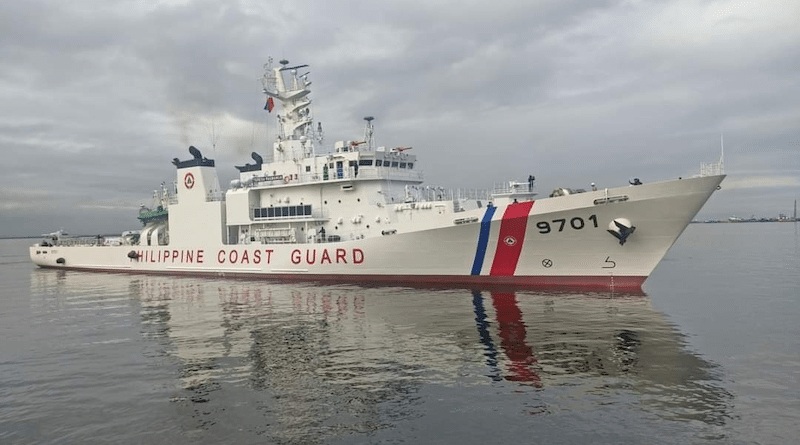
3. How Is the Philippine Coast Guard Taking the Lead in Navigating the Blue Economy? – Analysis
MANILA, Philippines: Through its experience in marine environmental protection and acknowledgment of the benefits of safe and secure seas, the Philippine Coast Guard (PCG) has been involved in promoting the Blue Economy as a tool to innovate maritime communities.
PCG held a Symposium Series on Current Issues and Approaches on “The Emerging Security Environment: Leadership and Governance in the Blue Economy.” The symposium’s objective was to enhance the performance of the PCG with its core functions, particularly those that deal with policies, rules, and regulations for safety and security at sea.
Taking into account that the Blue Economy becomes an inherent part of the 8-point socio-economic agenda as well as the priority bill of the present administration for sustainable jobs and livelihood, its implementation in the country necessitates a synergistic whole-of-nation approach and mechanisms that empower governance regimes that deal with management and conservation of marine ecosystems.
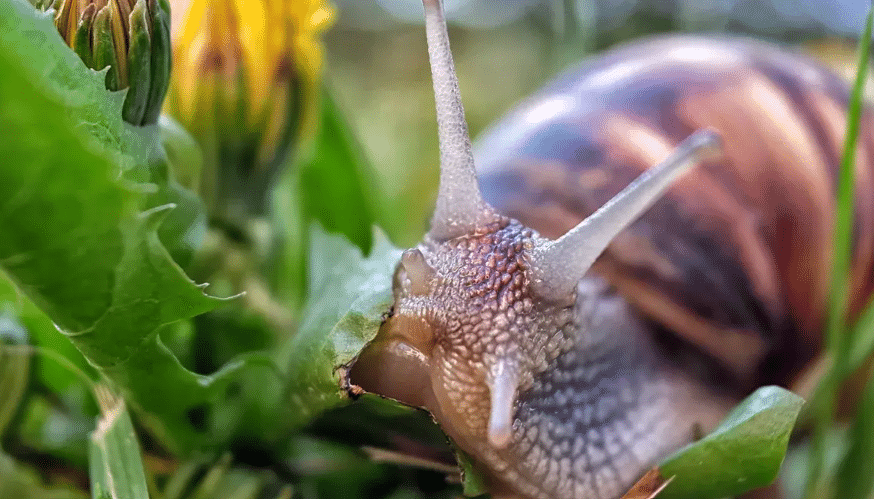
4. Hungry Animals Are Getting in the Way of Restoring Plant Ecosystems
Degraded ecosystems, often the result of activities such as overexploitation and pollution, can disrupt the balance of our planet’s vegetation, reducing its ability to provide essential ecological services, and harming the species that depend on it. Restoring such ecosystems involves the replanting of vegetation, but a recent survey of 2,600 restoration projects worldwide reveals a common oversight: herbivore pests. They consume new vegetation, with only 10% of projects addressing this issue.
Most projects exclude competing plant species but neglect herbivores. This oversight hinders restoration progress. Research shows introducing predators or barriers to control herbivores can increase plant regrowth by 89%. The decline of large predators is indirectly causing high grazing pressures. Traditional restoration slows vegetation loss but doesn’t increase plant diversity everywhere.
Using predators to control herbivores is a promising strategy, aiding conservation and reducing costs, and herbivores are essential once ecosystems are restored.
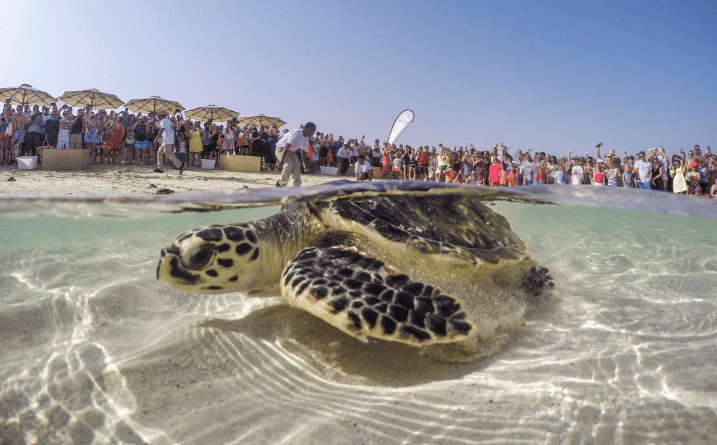
5. Sea Turtle Conservation Project Ripples Into Ecological Gains Across the Region
Based in the United Arab Emirates, the luxury-hotel Jumeirah Group’s efforts to rehabilitate sick and injured turtles has inspired wider public participation while helping restore the delicate balance of marine habitats. For almost two decades, this programme has been instrumental in nursing ailing and injured sea turtles back to health and releasing them into their natural habitats through collaborative efforts with Dubai’s Wildlife Protection Office, the Dubai Falcon Hospital, and the Central Veterinary Research Laboratory.
Aligned with the Ministry of Climate Change and Environment’s initiatives to protect these creatures that are critical to the local marine ecosystem, the Dubai Turtle Rehabilitation Project also serves to educate the youth, citizens, and international hotel guests about sea turtle biology and the state of sea turtle populations locally and internationally. The project also assists in tracking turtle movements regionally and globally through satellite technology, supporting rehabilitation assessment and research efforts.

6. How We’ve Demoted Sustainability to a Passing Trend
This editorial warns that trendy sustainability efforts are harmful to the environmental movement. The author instead calls on people to recognize the power that trends have over us and the harm these trends pose in undermining environmental problems that aren’t labeled “trendy.” The capitalist craze of the “Save the Turtles” movement brought to attention the endangerment of marine ecosystems and their organisms due to the careless consumption of plastics.
As a result, companies were publicly pressured into pledging to reduce the plastics they made available. Common sense would suggest that this helped to reduce the issue of turtles dying from plastic disposal and consumption, but studies show that plastic waste is washing into the ocean at an ever-increasing rate. The sad reality is that most of us choose to remain ignorant of the dystopian reality in which we are living.
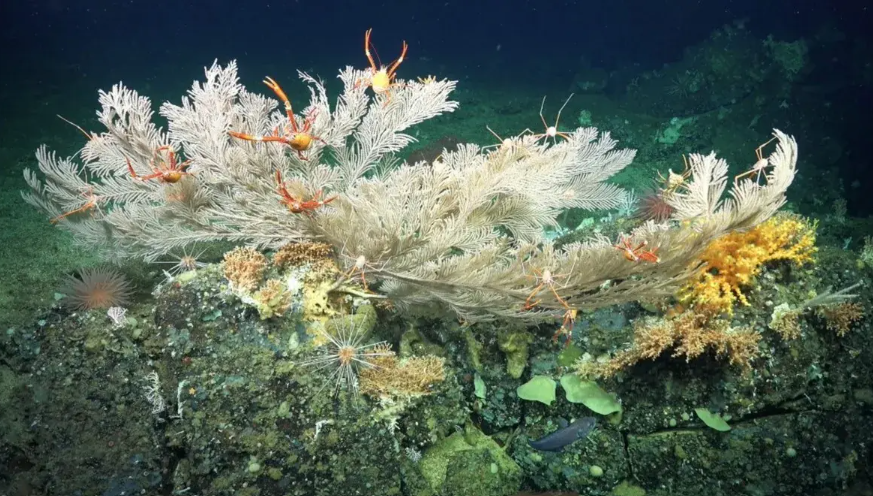
7. Robot Discovers Reef Bigger Than Eight Football Fields
Two healthy and pristine coral reefs have recently been discovered in the waters surrounding the Galápagos Islands. SuBastian, a remotely operated vehicle (ROV) with a depth capacity of 4,500 meters, was used by researchers onboard the research vessel Falkor to discover these corals. This ROV is designed for deep-sea exploration and research purposes. It is outfitted with various sensors, cameras, and equipment for observing and collecting data from the deep water.
The newly discovered cold-water reefs thrived at 370 to 420 meters. The largest of the detected reefs stretches for nearly 800 meters, which is as huge as eight football fields. On the other hand, the smaller reef measures 250 meters in length. Notably, it was found that both reefs display a diverse array of stony coral species, indicating their potential importance in supporting marine biodiversity over a long period, possibly spanning thousands of years.

8. Just 4% of Top Companies Meet UN Climate Target Guidelines, Study Says
Half of the world’s 2,000 biggest listed companies have set a target to get to net-zero emissions by mid-century, but just a fraction meet tough United Nations guidelines for what constitutes a quality pledge, a report on Monday showed. Net Zero Tracker, an independent data consortium including Oxford University, said corporate targets from Forbes2000 index companies had jumped 40% to 1,003 in October 2023, from 702 in June 2022.
However, just 4% of the targets meet the criteria laid down by the U.N.’s Race to Zero campaign, for example by covering all emissions, starting to cut them immediately, and including an annual progress update on interim and longer-term targets. The pace of change among governments and corporates is set to form a central part of the COP28 climate talks in Dubai starting in late November.
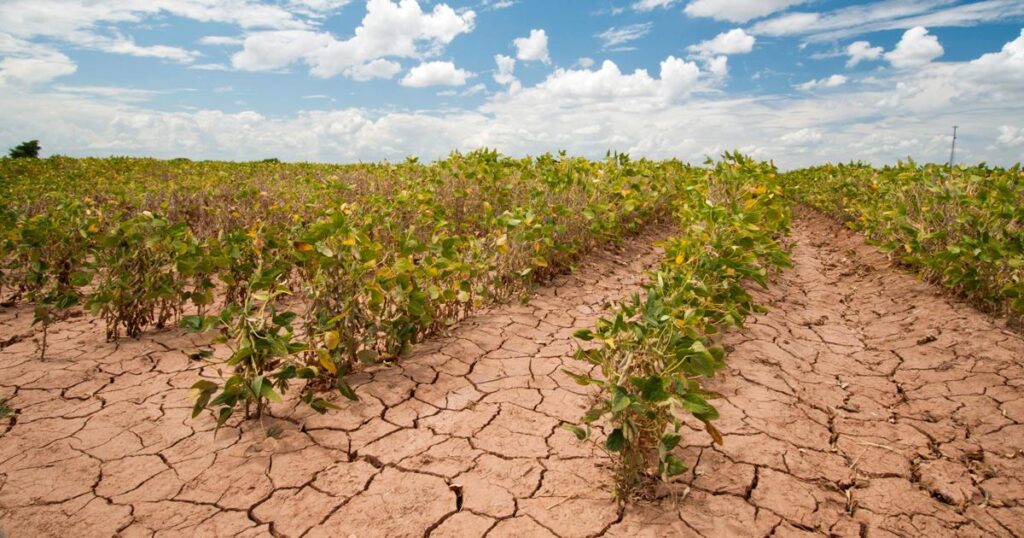
9. Nigeria Loses $100 Billion Annually to Climate Change
Climate change costs Nigeria about $100 billion annually, an Agora report has stated. The report titled “Climate Change and Socio-Economic Development in Nigeria,“ noted that climate change was increasing hunger, poverty, disease burden, migration, conflict, and insecurity in Nigeria, damaging infrastructure and changing the country’s coastlines. It added that it was fuelling desertification, producing water scarcity, facilitating erosion, and resulting in the loss of revenue for states and the national government.
Because some of the effects of climate change may be irreversible, it should be evident that climate change is not a marginal or peripheral issue that the government and the people of Nigeria can take lightly. According to the report, even though climate change poses significant threats to Nigeria’s economic development, it also presents an opportunity to diversify the economy, expand the country’s energy portfolio, address energy security concerns, and increase global economic competitiveness.

10. Former New Zealand Prime Minister Says Investors Looking to Fund Climate Change Solutions
Former New Zealand prime minister Jacinda Ardern said investors are increasingly looking to fund solutions to climate change and the world needs to act quickly to support innovative thinking in the field. “We see there’s a growing number of individuals, private equity and so on, who are looking to climate investment,” Ardern, a trustee on the Earthshot board, said in an interview with Bloomberg Television Monday in Singapore.
“We need to be making sure we have the solutions now and that we’re investing in those solutions now. We can’t afford to wait.” Ardern is in Singapore for the awarding of the 2023 Earthshot Prize, which gives $1.2 million to five winners each year to further their environmental work.

11. UN Chief Puts a Spotlight on Nepal’s Climate Crisis
During his recent visit to Nepal, United Nations Secretary-General Antonio Guterres witnessed the effects of climate change in the Everest and Annapurna regions. He called on the global community to take swift action to protect these mountains and glaciers, while emphasizing support for countries like Nepal that contribute minimally to climate change but suffer its consequences. Guterres highlighted how Nepal faces devastating impacts, including monsoons, storms, and landslides, despite its negligible global emissions.
These changes are affecting various sectors, from agriculture to health and education, leading to population displacement. His speech to Nepal’s federal parliament drew attention to the significance of Nepal’s climate crisis, bringing it to the global stage. Guterres stressed the importance of international collaboration, the Climate Adaptation Fund, and sustainable development financing. Experts underscore the urgency of implementing climate strategies and policies, as well as addressing the climate impacts affecting the daily lives of many.
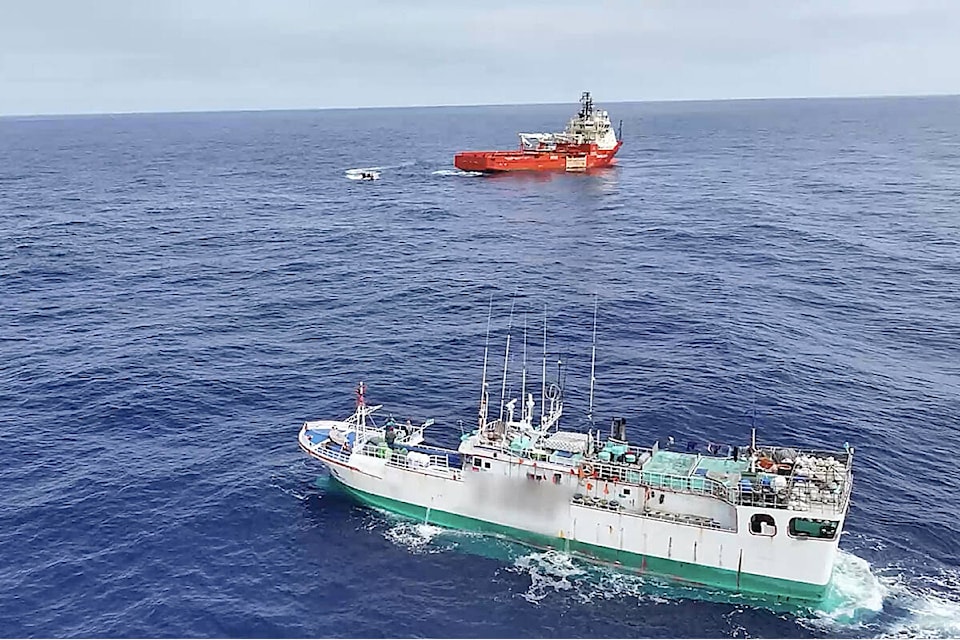
12. Canadian-Led Mission Enforces International Fishing Regulations
Fishery officer Jessica Bouwers and her team, alongside U.S. Coast Guard officers, patrolled over 12,000 nautical miles in the North Pacific Ocean to detect and deter illegal, unreported, and unregulated (IUU) fishing, as well as inspect fishing vessels to ensure compliance with international fisheries regulations. This Canadian-led mission, a first of its kind, involved boarding vessels and conducting inspections, including checking for illegal “shark finning”.
The team also focused on living and working conditions for crew members, highlighting issues related to extended contracts and crew treatment. They discovered over 3,000 illegally possessed shark fins. The operation aims to combat IUU fishing, which threatens marine ecosystems and fish stocks, including Pacific salmon populations. Bouwers emphasized the importance of Canadians being aware of fishing activities beyond the country’s 200-nautical-mile limit. The mission revealed numerous violations, and Canada is working with flag states to support further investigations and sanctions.

13. Online Delivery Blind Spot Could Foil Putrajaya’s Single-Use Plastics Ban, Green Groups Say
Environmental groups have called on the government to address the surge in plastic use for online deliveries, which could undermine the plan to ban single-use bags in retail settings nationwide by 2025. With the rise in e-commerce and food delivery services during the COVID-19 pandemic, the demand for disposable plastic bags and containers has increased. Sahabat Alam Malaysia’s senior researcher, Mageswari Sangaralingam, emphasized the need to identify sectors that heavily use single-use plastics and implement strict action plans.
She also suggested e-commerce and food delivery providers discourage plastic use by imposing charges for plastic packaging or offering return schemes for containers. There needs to be some innovation. There are plenty of alternatives to single-use plastics and the industry can adapt. Despite the challenges, environmentalists believe a total ban on single-use plastics is feasible and requires government enforcement.
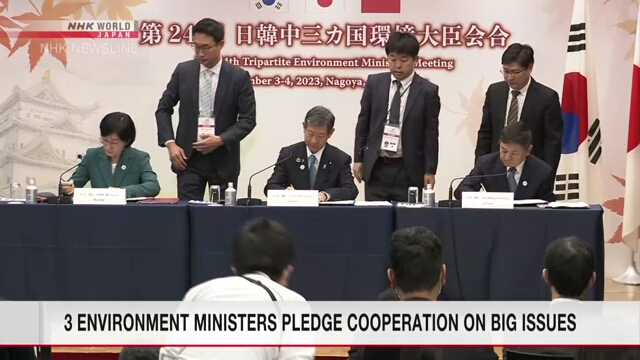
14. Environment Ministers of Japan, China, S. Korea to Cooperate Over Global Issues
The environment ministers of Japan, China, and South Korea have adopted a joint statement that pledges cooperation on challenges such as climate change and marine environment conservation. The Tripartite Environment Ministers Meeting began in the Japanese city of Nagoya on Friday. At the opening of the plenary session on Saturday, Japan’s Environment Minister Ito Shintaro stressed the safety of the ongoing release of treated and diluted water from the damaged Fukushima Daiichi nuclear power plant into the ocean.
Ito said that detailed analyses of water samples show the concentration of tritium is far lower than the standard set by the World Health Organization for drinking water. In a joint statement, the ministers confirmed that they are facing an unprecedented global crisis, such as climate change and biodiversity loss. They agreed to cooperate on global issues and protect the marine environment.
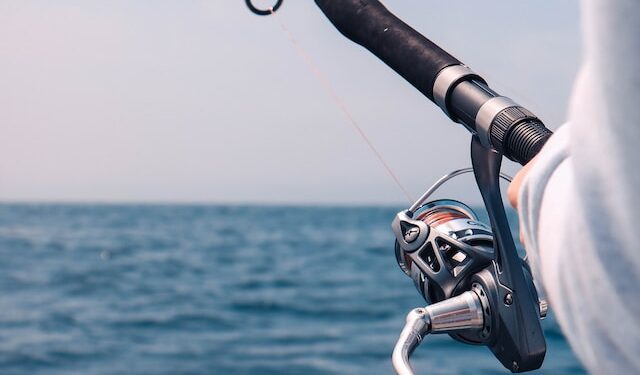
15. Concerns Grow Over Environmental Impact of Illegal Fishing on Reefs off Wa’s Kimberley
A marine science researcher says a decline in sea cucumber numbers on the Rowley Shoals in northern WA is concerning for global conservation efforts.WA Department of Biodiversity, Conservation, and Attractions (DBCA) last month said its staff had “anecdotally” seen a decline in numbers of the marine animals across all their reefs. Sea cucumbers, or trepang, are a known target of illegal fishers from Indonesia who supply the goods, as well as shark fin, to China.
Illegal fishing has long been an issue on the three islands that make up the Rowley Shoals Marine Park and Mermaid Reef Marine Park. Conservationists fear permanent environmental damage to the pristine marine ecosystem if tougher enforcement does not happen. University of Western Australia marine science research fellow Mark Meekan said the impact of illegal fishers on animal populations such as sea cucumbers, needed to be a priority.
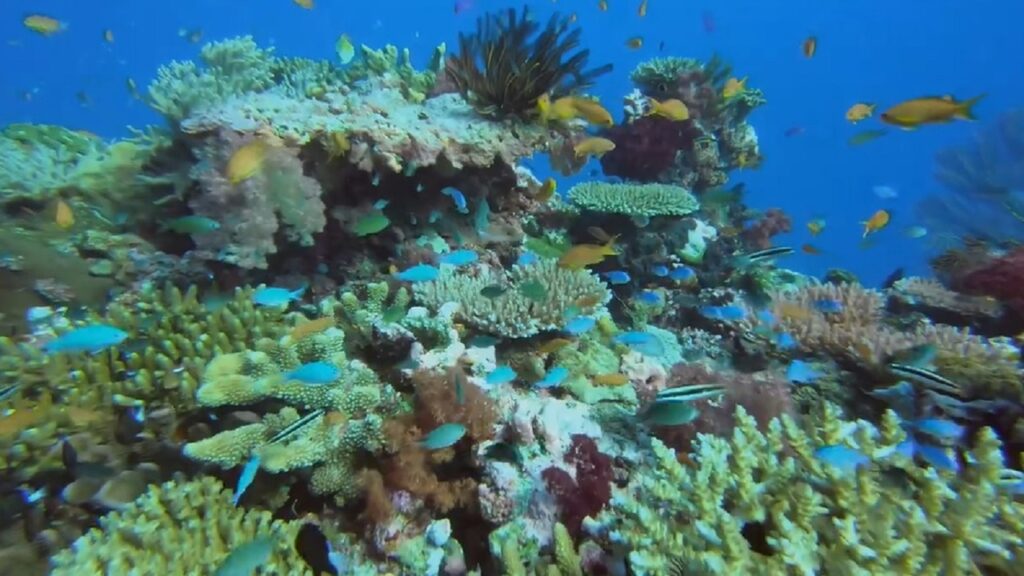
16. Central Marine Fisheries Research Institute’s Research on Coral Reefs Garners National Recognition – India
KOCHI: The research on coral reefs being carried out by the ICAR-Central Marine Fisheries Research Institute ( MFRI) has garnered national recognition, with Alvin Anto, a young professional at the institute, securing the prestigious Hasmkh Shah Memorial Award for Ecological Studies for the year 2023 in the research category. He has been recognized for his extensive research on the resilience of the coral reef in the Lakshadweep Islands, highlighting the increasing threats these critical ecosystems face from climate change and other human-induced factors.
“A passionate ocean enthusiast and a PADI certified dive master, Anto has led several underwater surveys concentrating on the coral reefs and associated marine life along the Indian coast and its islands. His work has been instrumental in providing valuable insights and data that a critical for ongoing conservation efforts. He is also part of CMFRI’s team conducting coastal surveys on marine mammals.”
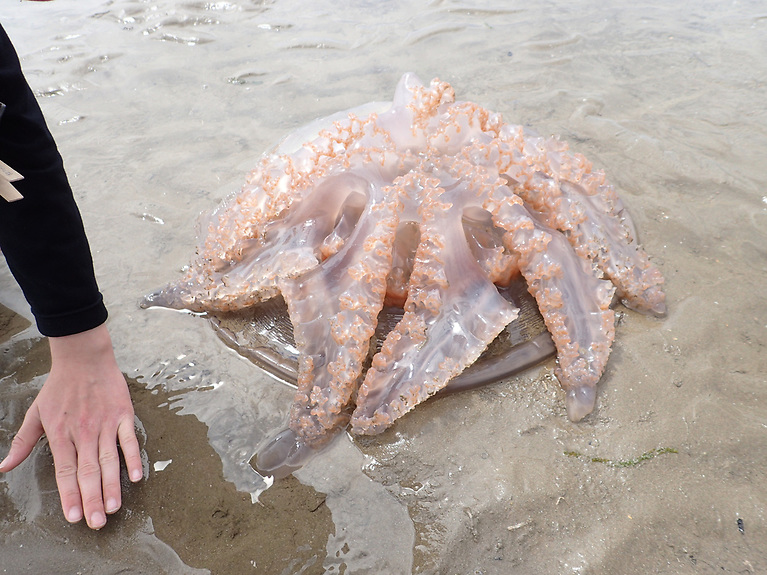
17. 32 Percent Increase in Jellyfish Sightings Recorded by Marine Conservation Society
There was a 32 percent increase in sightings of jellyfish around Irish and British waters over the past year, the Marine Conservation Society (MCS) says. Barrel jellyfish were the most common, according to its annual wildlife sightings report, with 467 sightings in total. Crystal jellies, comb jellies, and “sea gooseberries” accounted for about ten percent of the total.
As Afloat previously reported, barrel jellyfish which were normally only seen in waters off the southeast Irish coast, were reported last Mayo to be washing up in unusually large numbers along the entire coastline as far as Cork in the past few months. Sightings were recorded by the National Biodiversity Data Centre (NBDC) from Lough Foyle on the north coast down to west Cork in the south with anecdotal reports of more, according to University College Cork scientist and jellyfish expert Dr Tom Doyle.

18. Lady Bay Is Awarded Plastic-Free Communities Status
The Lady Bay area of West Bridgford joined a network of communities across the UK that are leading the way to tackle throw away plastic at source.
Lady Bay was awarded Plastic Free Community status by marine conservation charity, Surfers Against Sewage (SAS), in recognition of the work it has done reducing the impact of single-use plastic on the environment. Registering with the SAS Plastic Free Communities movement, the Lady Bay Steering Group pulled together key organizations and businesses in the community to put in place a five-point plan.
The objectives include; setting up a community-led steering group, linking with the SAS Plastic Free Schools education programme, getting local council commitment, and working with local businesses, organisations, and community groups to spread the word and minimise the amount of disposable plastics they use.
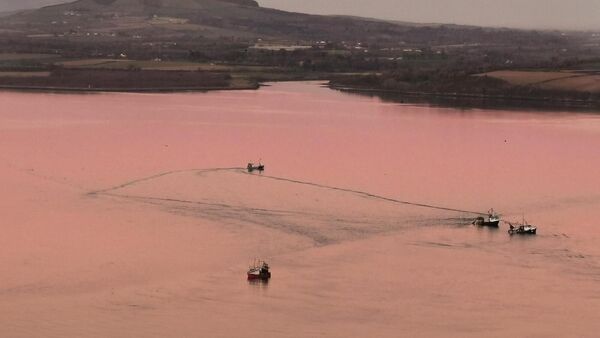
19. Resumption of Sprat Trawling in Kenmare Bay ‘Wiping out Marine Life’
KENMARE BAY, Ireland: The resumption of sprat trawling in Kenmare Bay, Co Kerry, a protected marine area, has angered both locals and ecologists, who say it wipes out valuable feed for whales, seals, and other wildlife. A ban on vessels larger than 18m fishing inshore in the bay was introduced in 2019 following extensive public consultation and a number of scientific studies.
However, a legal challenge to the ban by two boats succeeded on technical grounds earlier this year — while upholding the right of the Department of the Marine to implement the policy of banning pair trawling on inshore waters. Pair trawling is a fishing method involving two boats hoovering up the sprat shoals with small mesh nets — a practice that locals say is effectively wiping out much of the marine wildlife in the special area of conservation.
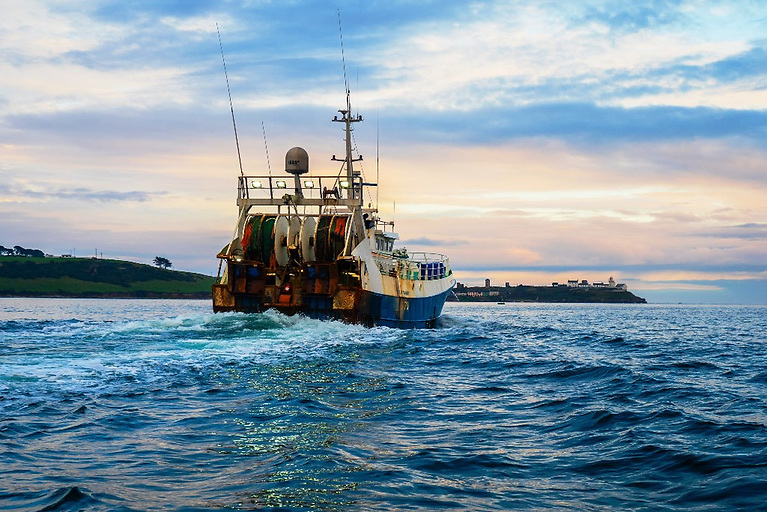
20. ‘Chaotic’ Governance Will Alienate Fishermen
KILLYBEGS: Ireland There is a growing feeling in the fishing industry that there is a lack of coordination between various Government Departments in developing marine, specially designated protected areas.
This has been particularly highlighted by the Killybegs Fishermen’s Organisation, which has claimed that the initial proposed Special Area of Conservation along the Porcupine Shelf and Southern Canyons, followed by the announcement of a Special Protection Area (SPA) in the North West Irish Sea in July, constitute what it describes as “the most chaotic form of governance that will ultimately alienate fishermen, driving a wedge between them and Government.
There is an acceptance within the industry that offshore developments, part of Government policy, will affect fishing, but there is what has been described as “deep unease”.
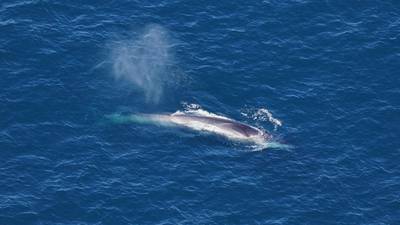
21. Aquarium Scientists Spot Rare Whale and Calf at Marine Monument as Care Plan Takes Shape
Scientists with the New England Aquarium are celebrating the sighting of an endangered sperm whale and calf at the Northeast Canyons and Seamounts Marine National Monument. The spotting was the first of its kind since aerial surveys began six years ago at the 5,000 square mile preserve, and accompanied the sighting of over 320 other marine mammals including 117 bottlenose dolphins, four fin whales, 27 Risso’s dolphins, 15 sunfish, and one True’s beaked whale.
The sightings come as the aquarium submits public comments to NOAA and the US Fish and Wildlife Service to draft a sustainable management plan for the monument, including renewable sources of funding for public outreach and, monitoring and managing human activity such as shipping and fishing, and coordinating research efforts and data collection for ongoing efforts to protect the critical conservation area.

22. Minister Barbara Creecy Engages With Stakeholders Ahead of 3rd Intergovernmental Negotiating Committee on Plastic Pollution, 7 Nov
The Minister of Forestry, Fisheries, and the Environment, Ms Barbara Creecy, will host a stakeholder engagement meeting on South Africa’s negotiating position ahead of the third Intergovernmental Negotiating Committee (INC3), on Tuesday, 07 November 2023. The third INC3 on Plastic Pollution is scheduled to take place in Nairobi, Kenya from 13 – 19 November 2023.
United Nations Environment Assembly resolution 5/14 requested the Executive Director of the UN Environment Programme to convene an intergovernmental negotiating committee, to begin its work during the second half of 2022, with the ambition of completing its work by the end of 2024. The Intergovernmental Negotiating Committee is mandated to develop an international legally binding instrument to end plastic pollution and marine litter.
The mandate to the 3rd session of the INC 3 calls for addressing the full plastic lifecycle and sets out a series of provisions to be developed.
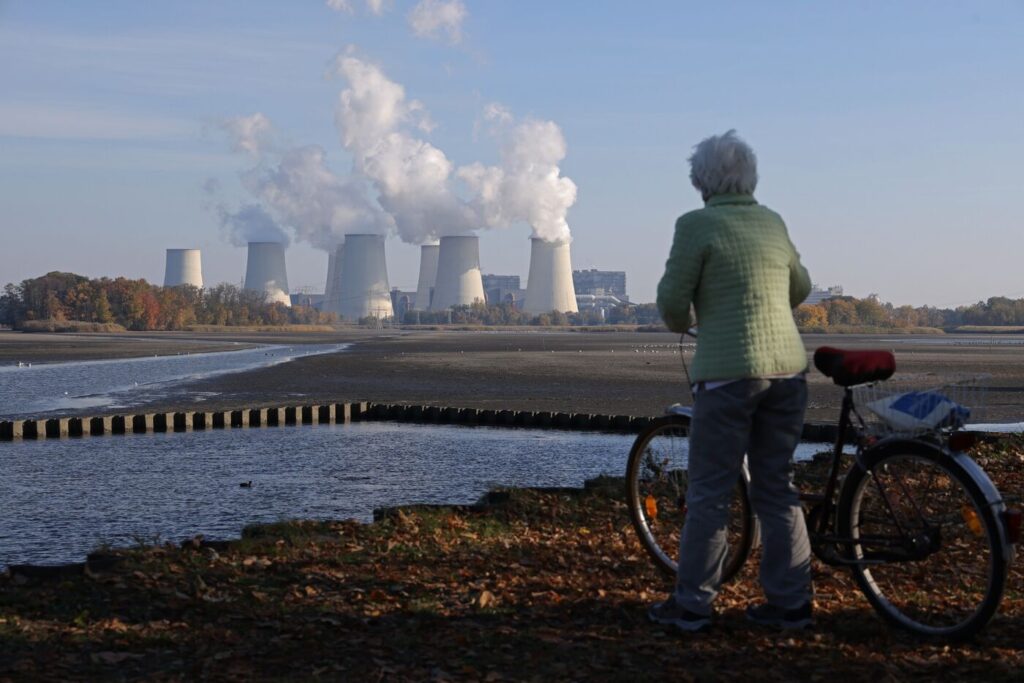
23. European and Island Nations Rally for Fossil Fuel Phaseout
In a groundbreaking move, a coalition of European countries and low-lying island nations has issued a call for a global phaseout of fossil fuels. This alliance underscores the urgent need for a definitive timeline to end the reliance on fossil fuels, emphasizing the existential threat climate change poses to island nations. These states, vulnerable to rising sea levels and extreme weather, are pushing for strong commitments at international climate talks.
The coalition aims to transition to renewable energy sources, advocating for policies that limit global warming and protect at-risk communities. This collaborative effort marks a significant step towards uniting countries in the fight against climate change and highlights the increasing recognition of the need for immediate action in addressing the climate crisis.

24. Marine Conservation Takes Center Stage in King Charles III’s Kenya Visit
During his visit to Kenya, King Charles III cast a spotlight on marine conservation, addressing the pressing challenges posed by climate change. His Royal Highness focused on the pivotal role of marine ecosystems in sustaining biodiversity and supporting local communities. King Charles highlighted the enduring impact of colonial history on Kenya’s environmental policies and the need for concerted global efforts to aid in the country’s fight against the ecological crisis.
The visit was marked by discussions that acknowledged the importance of preserving Kenya’s rich marine heritage in the face of global warming, with King Charles advocating for initiatives that would help protect threatened marine species and habitats, emphasizing sustainable practices and resilience against climate adversities. The royal engagement underscores an international commitment to confronting climate change and bolstering marine conservation.




